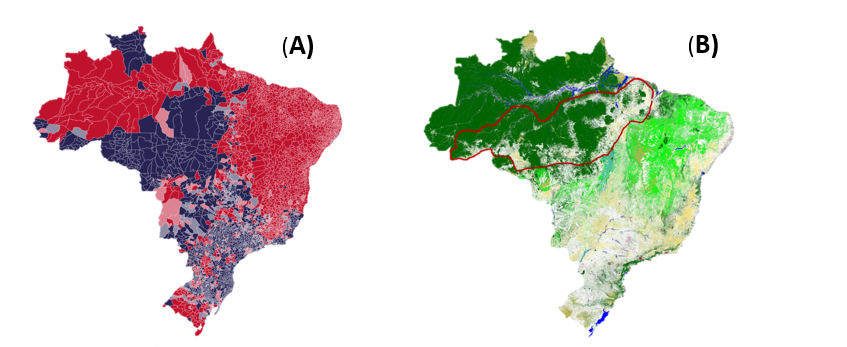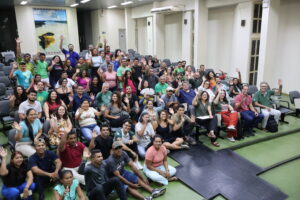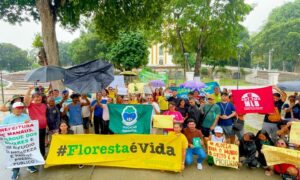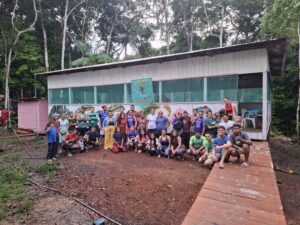Study developed by researchers from Instituto Juruá finds a relationship between pro-Bolsonaro municipalities in the Brazilian Amazon and loss of native vegetation and biodiversity
By Clara Machado
The main cause of loss of forests and natural environments is the expansion of agricultural land, and Brazil is the country with the largest area available for agricultural expansion in the world, most of which are in the Amazon.
To understand how this agricultural expansion which historically devastates forests in the Amazon, is related to the outcome of the first round of elections, researchers from Instituto Juruá – Carlos Peres, João Campos-Silva, and Camila Duarte Ritter investigated the results of the first round in 558 municipalities of the Brazilian Amazon and reviewed data on the loss of vegetation of the biome between 1985 and 2021, available on Mapbiomas Brasil website.
The results are not surprising, as they confirm a direct relationship between pro-Bolsonaro votes and the advance of deforestation. An increase of votes for Bolsonaro was seen in 9 out of 10 municipalities in the Amazon with the highest rate of deforestation since January of 2019. Municipalities with high deforestation rates also experience high rates of underemployment, which may reflect illegal logging, land grabbing, and mining activities. The authors speculate that this may be an important factor in voting for the current president since he is not committed to combating these activities.
On the other hand, the majority of the municipalities where Lula had the most votes in the first round, remain virtually intact in forested areas and are occupied mainly by traditional and native Amazonians, whose territories have been increasingly invaded by squatters, farmers, illegal loggers, and gold miners.
The pro-Bolsonaro municipalities are clearly distributed in the well-known “Arc of Deforestation” and adjacent areas such as the consolidated agribusiness belt of the southern Amazon, where soybean lands have advanced rapidly to pastures of low-productivity cattle. And the potential for greater agricultural expansion on currently protected and unprotected land is daunting, as new soybean plantations can rapidly colonize about two-fifths of the Amazon.

Jair Bolsonaro came to power in 2018, promising forgiveness to the farming community for any previous environmental violations. In addition, government incentives, such as new infrastructure, rural credit, and public land titling, clearly favor a model that attracts migrants to the Amazon in the search for enrichment at the expense of severe environmental losses.
The study entitled “Environmental policy at a critical junction in the Amazon” is published in the Trends in Ecology & Evolution journal, and concludes with an appeal for the Amazon “defeating Bolsonaro is essential, not only to stabilize environmental conservation in the Amazon but also to comply with international policies for biodiversity conservation, socio-environmental justice and sustainable development that will ensure a better future everywhere on Earth.”






